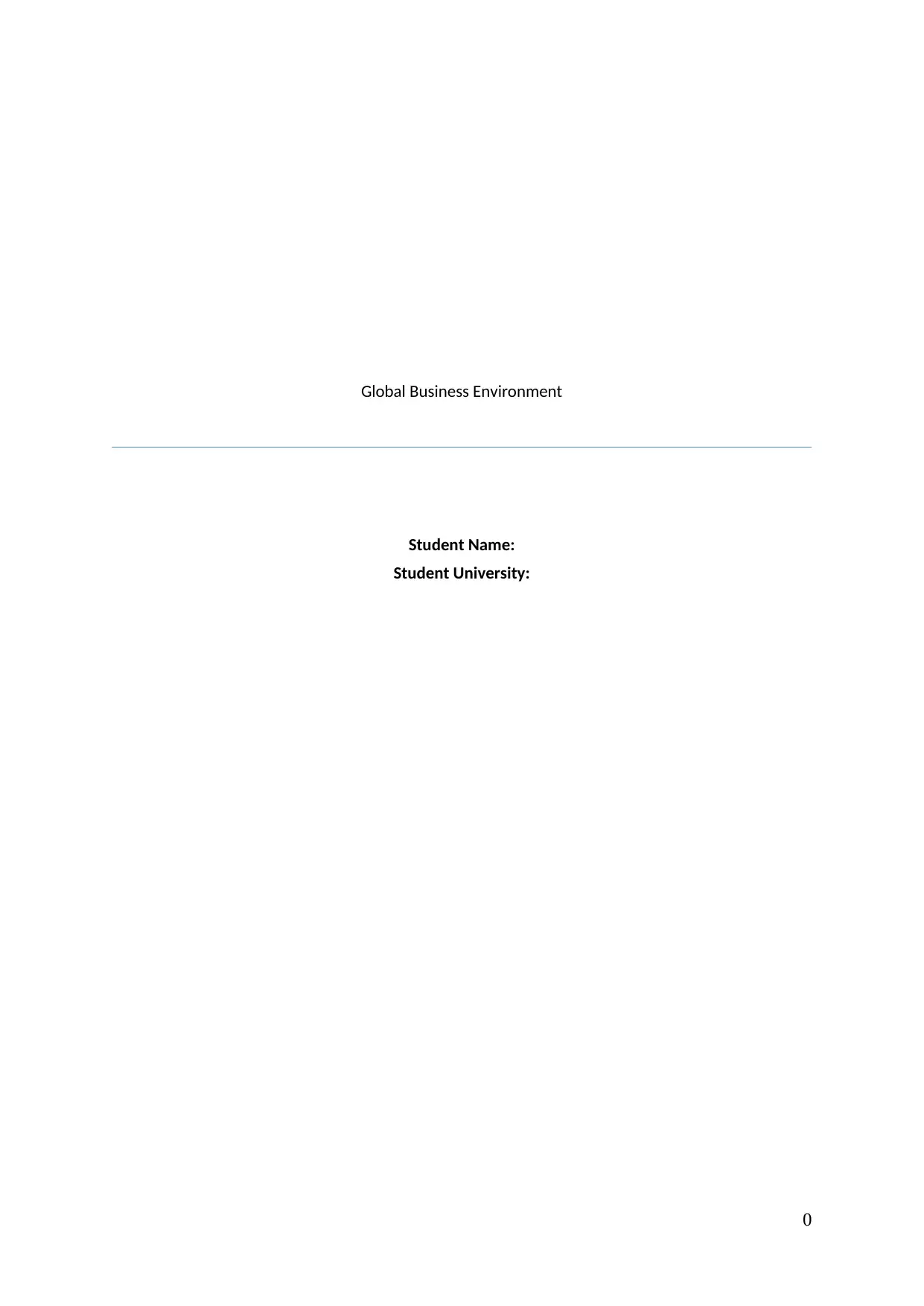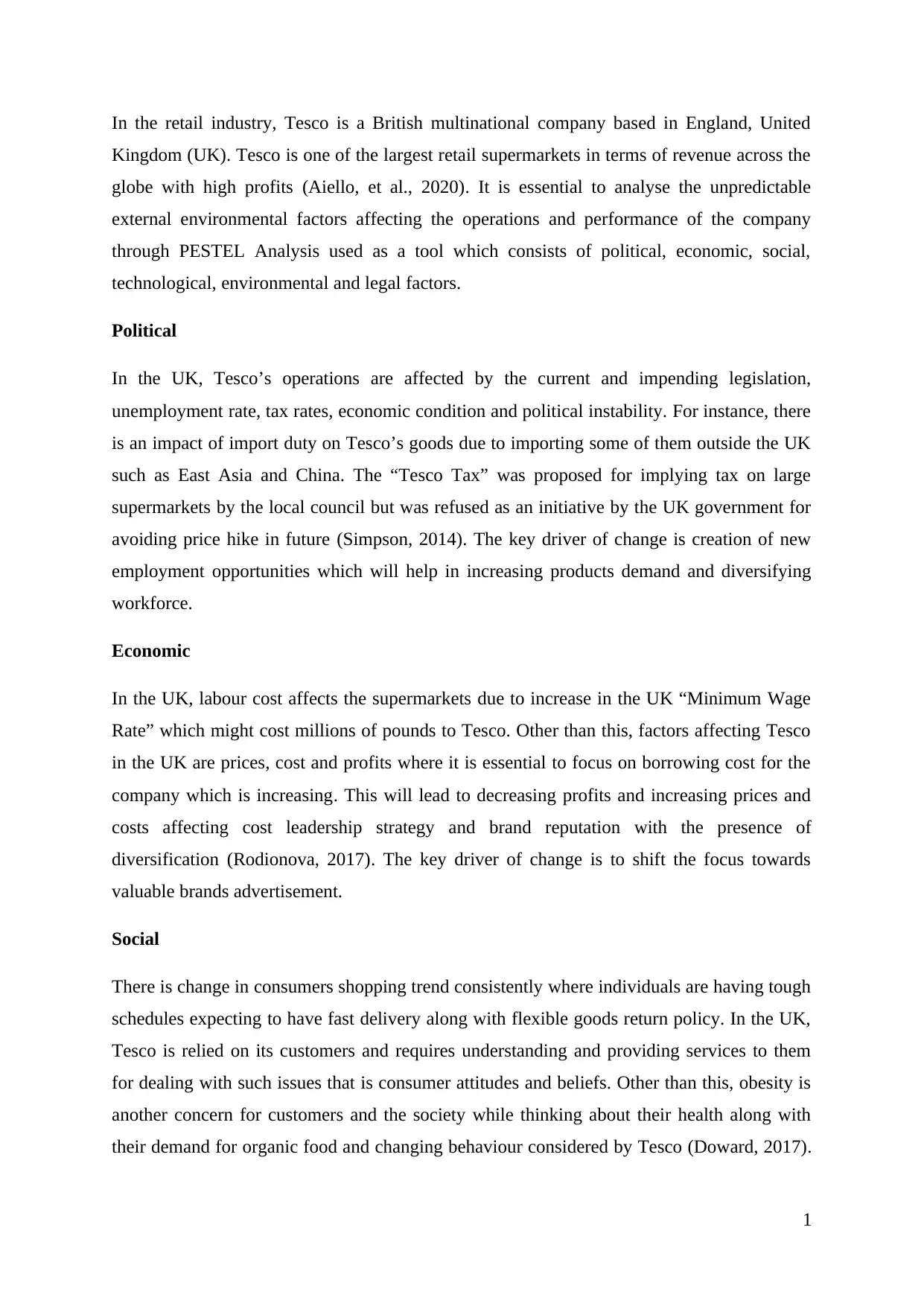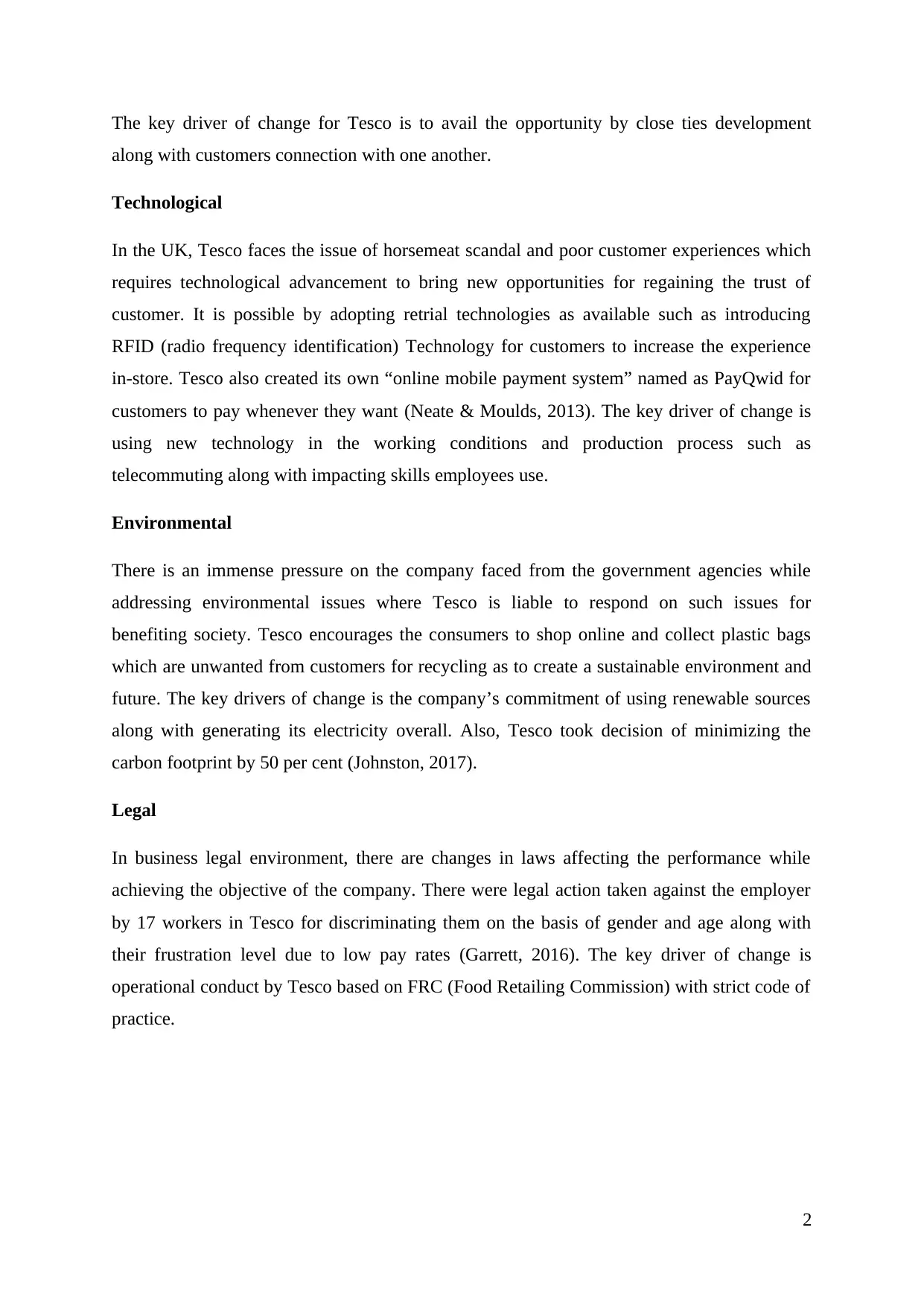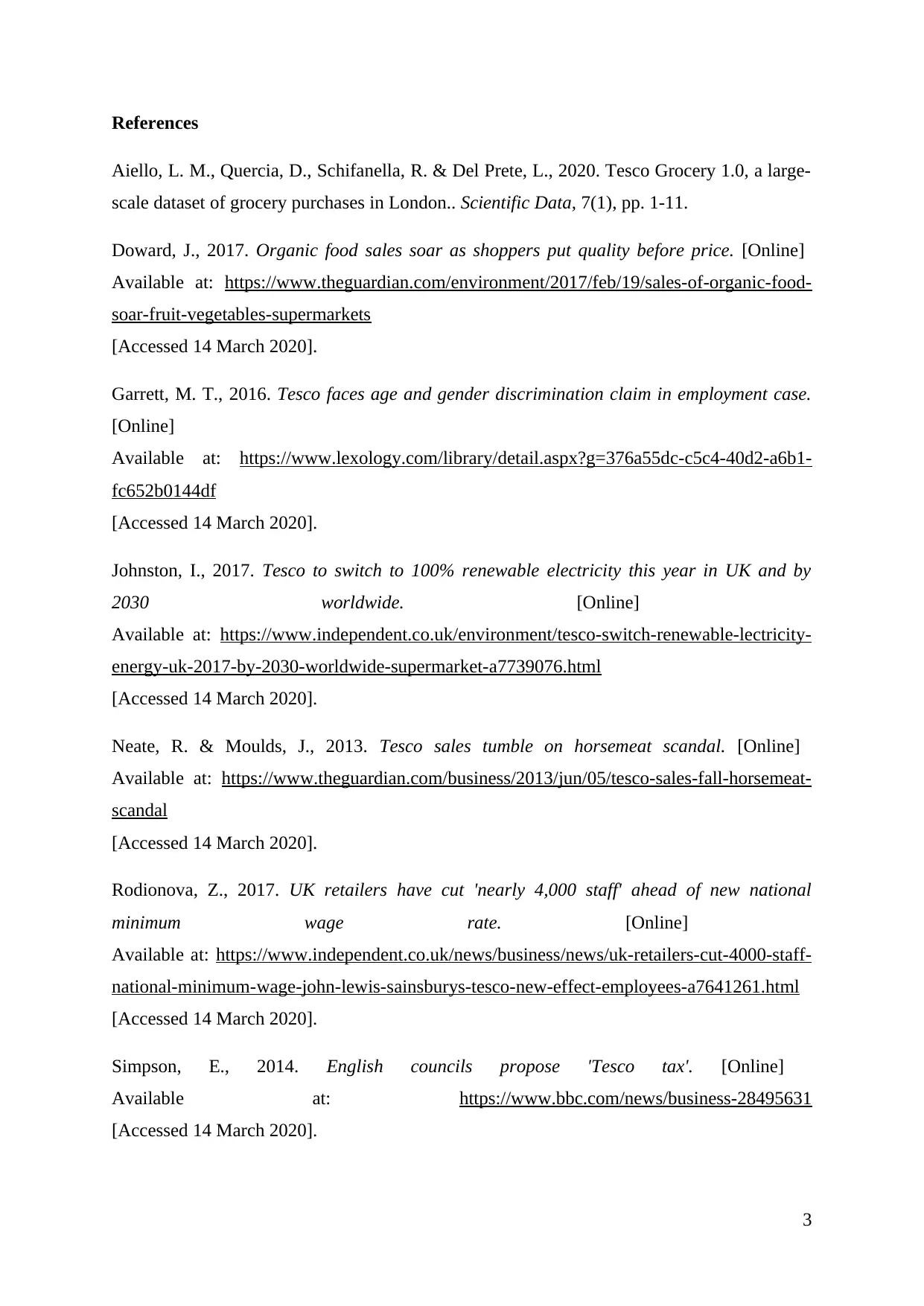Impact of PESTEL Factors on Tesco's Global Business Operations
VerifiedAdded on 2022/08/21
|4
|998
|16
Report
AI Summary
This report provides a comprehensive analysis of Tesco's global business environment, focusing on the application of the PESTEL framework. It examines the political, economic, social, technological, environmental, and legal factors impacting Tesco's operations and performance. The political section discusses legislation, tax rates, and political instability, including the impact of import duties and proposed taxes. Economic factors analyzed include labor costs, borrowing costs, and the need for brand advertisement. The social aspect covers changing consumer trends, including demand for fast delivery, flexible return policies, and health concerns. Technological advancements, such as RFID technology and online payment systems, are also addressed. Environmental considerations include pressure from government agencies and Tesco's commitment to renewable energy and reducing its carbon footprint. Finally, the legal environment explores changes in laws and legal actions, emphasizing the importance of operational conduct. The report references key sources to support its findings.
1 out of 4











![[object Object]](/_next/static/media/star-bottom.7253800d.svg)